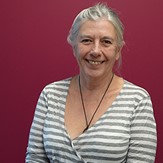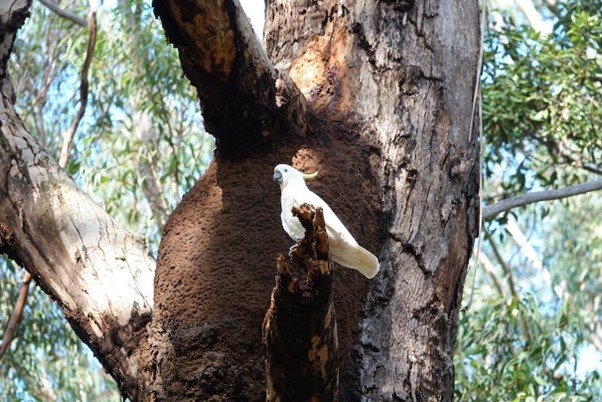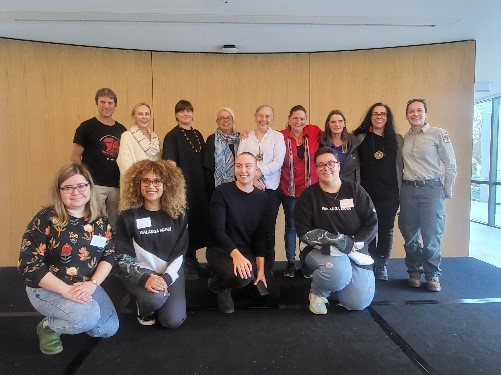Dr Jo Rey CACHE ECR Indigenous Australian Research Fellow 2022

CACHE welcomes Dr Jo Rey, our 2022 ECR Indigenous Australian Research Fellow.
Jo is a Dharug scholar and currently holds a Macquarie University Fellowship for Indigenous Researchers, Department of Indigenous Studies at Macquarie University.
Jo’s Indigenous research is centred in Dharug Ngurra/Country, which covers the majority of the Sydney metropolitan area. The current focal sites involve the Shaw’s Creek Aboriginal Place, at Yarrumundi (far western Sydney); the Blacktown Native Institution site at Oakhurst (central western Sydney); and Brown’s Waterhole, Lane Cove National Park (north-western Sydney). Jo’s doctoral research showed that Dharug cultural continuity is centred in connecting, caring, and belonging to the presences, places, and people of Ngurra (Rey 2019).
Her post-doctoral work takes the next step towards better understanding what is at the core of that Indigenous cultural agency. It is recognised that the concept of relationality is a web of human-other-than-human agency underpinning sustainable continuity and involves what Jo has termed ‘Living Law’, so-called because without it no sustainable futures are possible. Sustainable relationality involves Recognition, Respect, (Equitable) Rights, Responsibility, and Reciprocity. Living sustainably requires all these elements to be active (Rey 2021b).
In a time of climate changing catastrophes, recognition that the system that has been in place across the last 234 years has not functioned according to this ‘Living Law’ is happening. The understanding that practices not respecting the interwoven nature of sustainability has led to new respect for Indigenous knowledges and practices, especially since the 2019-2020 megafires threatening urban areas. In 2022, Jo and Dharug women received a grant from the Department of Planning and Environment to undertake, for the first time since colonisation, a Dharug women’s-led cultural burn at the site of Brown’s Waterhole. Activating this practice is not just about lighting a match. Rather it is about undertaking the procedure through ‘Living Law’: Recognising the bio-diversities in place, Respecting those presences, and determining how to care for their continuity while ‘cleaning up’ Country; providing equitable Rights for those needing protection; taking Responsibility for the sustainability of that ‘neighbourhood’ and showing care as Reciprocity for the changes being undertaken (Rey 2021a).
To do this, working with the broader neighbourhood: the University, Macquarie Business Park, NPWS and RFS brings Dharug community into relationships working together for sustainable futures. Most recently recognised is the power of proximity (localised activism) that makes feasible the activation of ‘Living Law’, just has been undertaken according the Indigenous caring for Country practices for thousands of years.
Dr Rey’s 2022 CACHE Research Fellowship project, titled Dharug Agency in Place: Living Law, proximate relationality and neighbourliness is sponsored by CACHE Co-Deputy Director, Dr Emilie Ens is the next step.

Ancestors Watching at the Browns Waterhole Community and Stakeholders Information Day, May 26th 2022. (Jo Rey, 2022)
With CACHE support, both in funding and human resources, Jo aims to combine western technology with Indigenous biocultural knowledges and practices, and so enact the relationality of ‘Living Law’ through the presences, places, and people of Brown’s Waterhole. With the purchase of monitoring cameras, we can see who the local other-than-human inhabitants are, that need to be considered as we proceed towards cultural fire. Sharing CACHE skills in training Dharug women in the use of the cameras will open the loop of Reciprocity (considering the damages to Dharug Ngurra that have been perpetrated since colonisation); while Dharug women sharing our ways of knowing being and doing will close that reciprocal loop and strengthen the relationality in place for sustainable wellbeing across human and other-than-human realms. Holding a community information sharing day will bring the broader Lane Cove River and National Park community into the sphere of relationality for the future wellbeing of the River, Her neighbourhood and Dharug Ngurra.
Specifically, in the immediate term, Jo aims to:
- Monitor river and riparian conditions before and after the proximate cultural burn using current technological systems
- Grow Dharug biocultural knowledges through river, riparian, and human relationality for sustainable biocultural maintenance.
In the medium term, Jo aims to:
- Open ‘neighbourliness’ as relational reciprocity through local community and key stakeholders
- Extend responsible caring for Country practices through proximate school and education systems
- Expand existing collaborations for sustainable futures.
Finally, in the long term, Jo wishes to expand the biocultural hub to the extent of the Lane Cove National Park, creating the first Dharug Biocultural Zone.
“Yanamawa budyari gumada, Walking with Good Spirit” - Dr Jo Rey
CACHE is delighted to be supporting Jo’s work which will facilitate a consciousness of proximate experiential learning that underpins all relationality. Holding another Community and Stakeholders information day would be one such approach, but less formal sessions around the Learning Circle (both at MQU and at BWH) would be feasible. These sessions would foster the relationship building that is required for sustainable futures.

Dharug Women and Allies at the Browns Waterhole Community and Stakeholders Information Day, May 26th, 2022. (Image Jo Rey 2022, from 26.05.22)
For more information about Dr Rey’s research and publications, see her MQ researcher profile. Recent productions include:
Rey, J. and Parry, M. (2022). Dharug Presences in Place: Where's Dolly Dreaming? (Poetic multimedia). In: 'Ann Randall's Story': https://www.dsmg.org.au/blog
Rey, J. (2022). Weaving “Lifeworkings”: Goanna Walking Between Humanism
and Posthumanism, Dharug Women’s Way. Ch. 11. In: Planet Work: Rethinking Labor and Leisure in the Anthropocene. Lewisburg: Bucknell University Press, pp. 220-237.
Rey, J. (2022). Quiet activism through Dharug Ngurra: reporting locally grown – not from the European South. https://www.fesjournal.eu/numeri/aftermaths-vulnerable-times-vanishing-places-toxic-erasures/
Rey, J. A. 2021a. Changing Places: Weaving City Learnings into Country Futures. In Indigenous Futures and Learnings Taking Place, edited by L. Lopez Lopez and G. Coella. Melbourne: Routledge.
Rey, J. A. 2021b. "Indigenous Identity as Country: The “Ing” within Connecting, Caring, and Belonging." Journal of Genealogy 5 (2).
Rey, J. (2019). "Country Tracking Voices: Dharug women's perspectives on presences, places and practices." Doctorate, Educational Studies, Macquarie University.
Image (top) Dr. Jo Anne Rey, Indigenous Studies Department, Faculty of Arts, Macquarie University.
